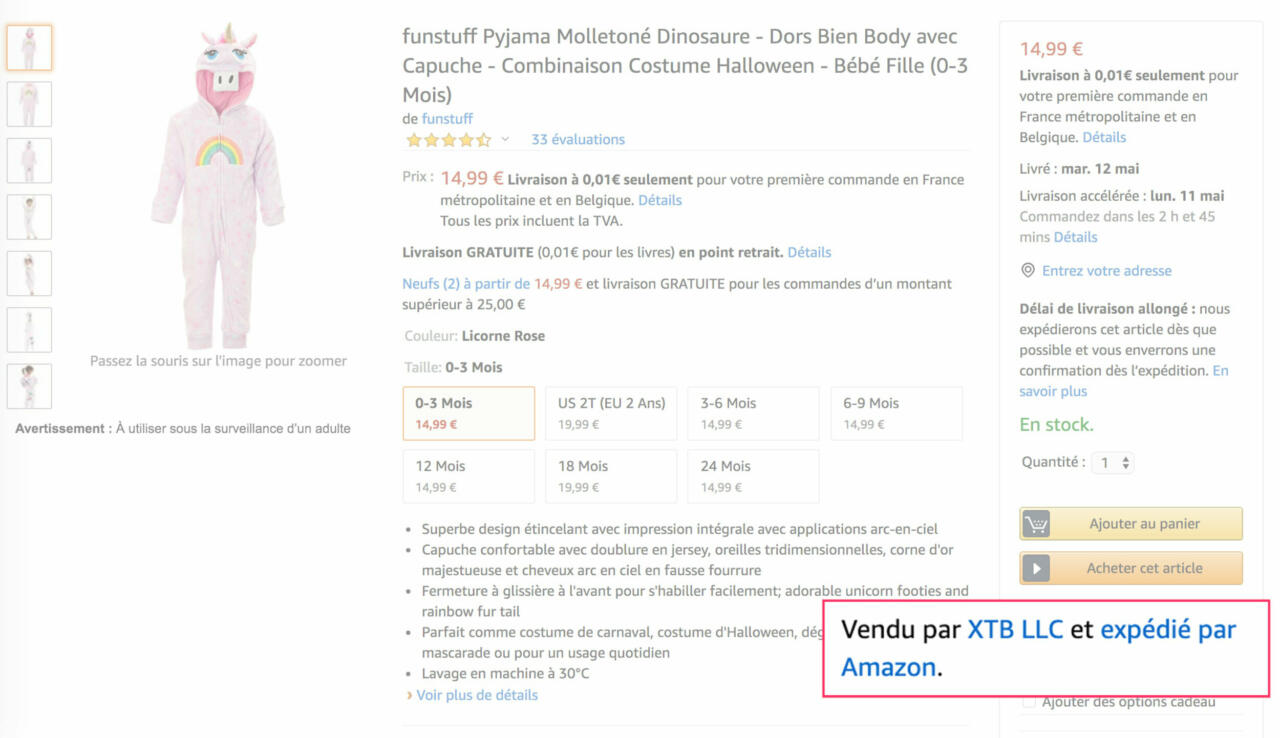Hello, friends,
Kids’ costumes. Novelty light boxes. Basketballs. And of course, rubber chickens.
Last month in this newsletter we asked you to send us screenshots of nonessential items that you found for sale on Amazon. And you delivered: The screenshots have flowed into our rubberchicken@themarkup.org email address.
What we have learned is that Amazon is still shipping all sorts of novelty items from its warehouses around the globe, over the protests of workers who say warehouse conditions are too dangerous to justify shipping nonessential items.
On April 30, Amazon Workers International, a coalition of Amazon warehouse employees across the globe, issued a letter to Amazon CEO Jeff Bezos demanding better working conditions and a suspension of shipping nonessential goods.
The letter also accused the company of misinforming the public about what kinds of products were being processed at the warehouses: “At no point during the past weeks did the company actually reduce its operations to essential products.” The group included photos of shipments packed by Amazon workers—including a squid costume, an artificial tulip wreath, and a disco light.
In response to an inquiry about the worker’s letter, Timothy Carter, an Amazon spokesperson, said the company has taken many steps to improve safety at its workplaces and increase worker pay. He did not respond to the letter’s specific demands. “We encourage anyone interested in the facts to compare our overall pay and benefits, as well as our speed in managing this crisis, to other retailers and major employers across the country,” he said in an emailed statement.
We started looking into this issue after Amazon announced in mid-March that it would no longer accept nonessential products at its U.S. warehouses. The Markup investigative data journalist Maddy Varner dug deeper and found that Amazon had been quietly loosening the definition of what it considers an essential item, which meant she could still order a bowling ball, a 10-pack of rubber chickens, and a prom dress—all direct from Amazon warehouses.
At the time, Amazon spokesperson Andrea Ruge told us that the company was still prioritizing essential items, but “we have begun selectively bringing more products from our selling partners into our fulfillment centers.”
After Maddy’s article appeared, we wondered whether our readers were also finding it easy to order nonessential items on Amazon. We received submissions from across the United States as well as from the U.K., Canada, Spain, France, Germany, the Netherlands, and Italy. We heard the same story over and over again: Customers were facing no obstacles in obtaining nonessential items from Amazon’s warehouses.
Reader Román Parra, who lives in Madrid, sent us a screenshot of an Amazon listing for a basketball sent from Amazon’s warehouse—“Vendido y enviado por Amazon.”
“I believe that workers and other people should not be exposed for the purchase of non-essential products or activities,” he wrote in an email, “but I also understand that there are many third parties who depend to a greater or lesser extent on large companies such as Amazon to survive.”
Edmonton, Alberta, reader Mack Male sent us a screenshot of a rubber chicken that could be ordered on Amazon.ca and shipped from an Amazon warehouse through the “Fulfilled by Amazon” program.
He said that he’s had no trouble getting delivery of nonessential items—like a replacement strap for his Fitbit—but the alcohol wipes that he ordered still hadn’t arrived after a month.
We were most surprised to learn that nonessential items were on sale in France. On April 14, a French court ruled that Amazon had to stop delivering nonessential items during the health crisis. And on April 24, a higher court upheld the ruling after Amazon appealed. As a result of the rulings, Amazon shut its six French warehouses until at least May 18.
And yet, on May 2, a reader who asked not to be named sent us a screenshot of a friendly pink dinosaur costume for sale—described as being shipped directly from Amazon’s warehouse: “expédié par Amazon.”

Amazon spokesperson Timothy Carter said in an emailed statement, “Customers can still order the vast majority of products they most need and want on amazon.fr. This is possible thanks to the millions of products available to them directly by third party sellers, and thanks to Amazon’s global fulfillment network.”
Mariangela Marseglia, Amazon vice president and country manager for Spain and Italy, told El Pais why she was rejecting a request from the Spanish Confederation of Commerce—a small business association—to ban nonessential items: “Isn’t it essential for a mother who cannot leave the house to get a toy for her child?”
It appears that, in practice, Amazon has more power to decide whether a toy or a clown costume is essential than any government. And that is why we at The Markup are committed to reporting on the actions of powerful tech companies, so the public can hold them accountable.
As always, thanks for reading.
Best,
Julia Angwin
Editor-in-Chief
The Markup
